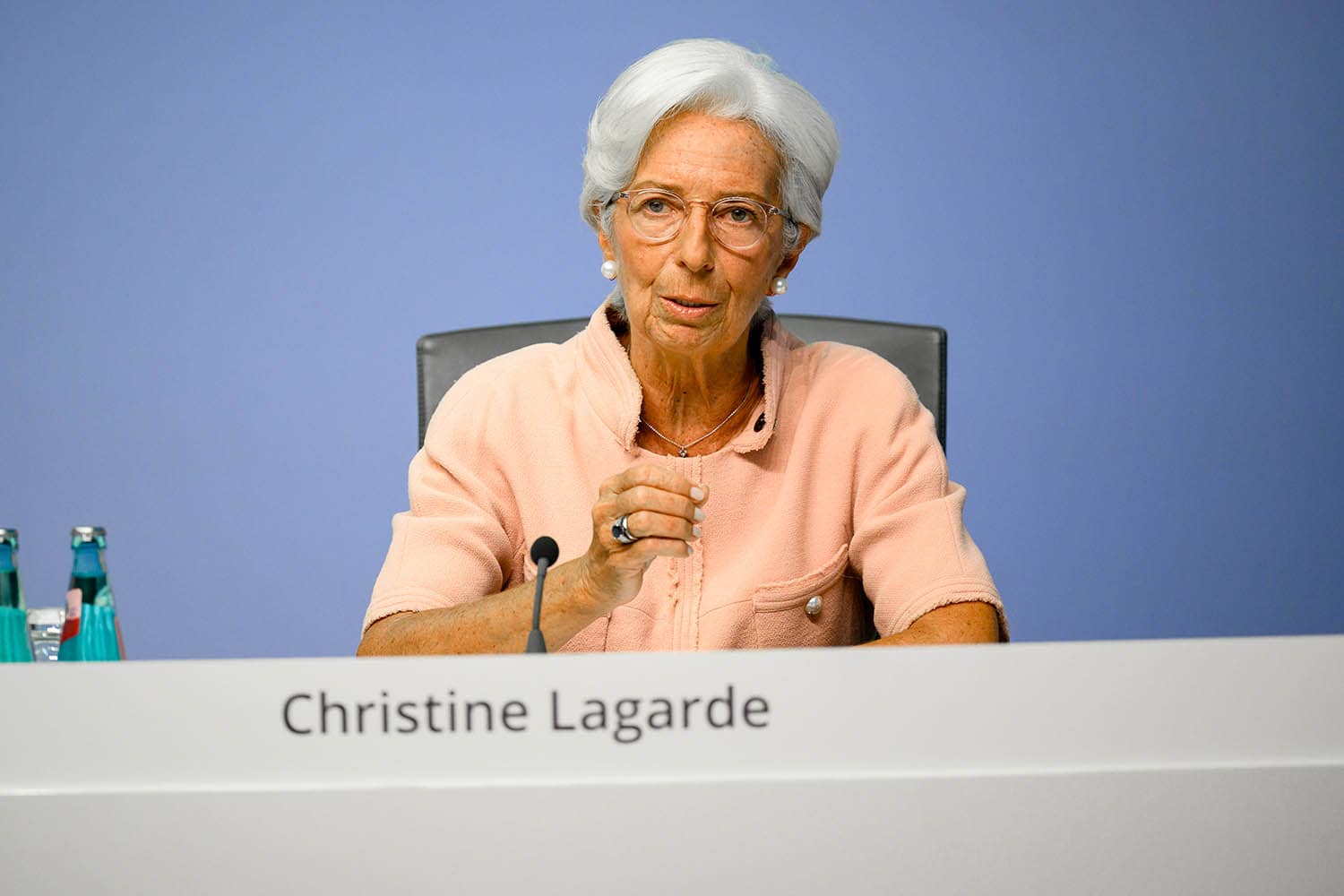
File image of ECB President Christine Lagarde. Photo by Sanziana Perju / European Central Bank.
The Euro ticked higher following the European Central Bank's January policy decision. But there will be no lasting strength as it continues to beat a path to lower rates.
Euro exchange rates were up across the board after the ECB cut interest rates by 25 basis points, making for a fifth cut in this cycle.
The lowering of the deposit rate to 2.75% and signalling another cut in March remains likely as the central bank judges the monetary stance "remains restrictive".
The ECB has cut further and faster than peers in the UK and the U.S., ensuring the Euro has underperformed the Pound and Dollar over the past year. All signs point to a continuation of the trend, and traders will be inclined to look through the post-decision rebound.
The ECB concluded that "the disinflation process is well on track," pointing to the need for further cuts.
"The economic recovery is still facing headwinds. Disinflation remains on track. Interest rates are restrictive. There is really no reason to think the ECB won’t continue to cut rates, at least to a neutral level, and we think quite probably below neutral by year-end," says economist Mark Wall at Deutsche Bank.
The decision comes after Eurozone GDP was reported at 0% quarter-on-quarter in the final quarter of 2024, which will disappoint against expectations for 0.1% growth, and down on the previous quarter's 0.4% gain.
Weighing on the headline figure is Germany, where a -0.2% q/q was reported, down from 0.1% and below the -0.1% that was expected.
The ECB's rate cut and guidance are signalling confidence that inflation is on target to return to the 2.0% target.
"It's clear that after cutting its deposit rate from 3% to 2.75% today, the ECB expects to reduce rates further in the coming months," says Jack Allen-Reynolds, Deputy Chief Eurozone Economist at Capital Economics. "We think that weak growth and inflation will mean that the Bank has to lower interest rates further than most investors expect."
The Euro's bounce following the data might suggest a 'sell the rumour, buy the fact' reaction to the event, which is a counter-intuitive reaction that quite often follows on-point central bank policy updates.
By all accounts, the ECB's January decision and guidance were on point.
Lee Halpenny, an analyst at MUFG, says the Euro's initial move higher following the decision shows the market is heavily positioned against the single currency. That the ECB wasn't even more dovish than what transpired would have prompted some position holders to close out and the Euro to rise.
Peter Schiff, Chief Economist & Global Strategist at Euro Pacific offers something of a counterpoint: he says the ECB might have already cut too far:
"The price of gold is up another 25 euros per ounce, trading at another record high. Gold is clearly warning that the ECB is too easy, and Europe will be hit with higher inflation."
If he's right, then the Eurozone is walking into a stagflationary period where growth stagnates and inflation rises. This is never good for the currency involved.
